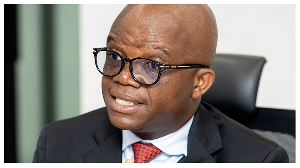Zimbabwe’s Senate has passed controversial amendments to the country’s constitution, which critics say will further entrench President Emmerson Mnangagwa’s rule and roll back democratic gains.
The amendments that give the president powers to appoint the chief justice, deputy chief justice and the judge president will mark the first time the country’s new constitution that was passed in 2013 is being altered.
It took President Mnangagwa’s ruling Zanu PF, which enjoys a super parliamentary majority, over three years to push through the contentious amendments after a spirited campaign by the opposition and civil society to block them.
The Bill was initially passed in August 2017, but Constitutional Court judges ruled that the process violated the constitution.
After a year of purges targeting the mainstream opposition MDC Alliance whose legislators were controversially thrown out of Parliament, the amendments were passed unopposed by the Upper House on Tuesday.
The new constitutional provisions now await President Mnangagwa’s signature before they become law.
Legal experts, however, say the amendments are a violation of the constitution and will weaken democracy in Zimbabwe.
“It increases the power of the executive, reducing the transparency, openness and accountability of a process that was introduced just years ago,” said Alex Magaisa, a Zimbabwean constitutional law expert based at the United Kingdom’s University of Kent.
Dr Magaisa added: “There are two principal reasons why the Constitutional Bill is illegal.
“The first reason is deceptively simple: there was no Constitutional Bill before the current Parliament.
“The second reason is that the purported passage of the Constitutional Bill is a nullity because it violates the constitution.”
The lawyer said in terms of the law the old Constitutional Bill lapsed in July 2018. He said the violation of the constitution began with the military coup that toppled long time ruler Robert Mugabe and ushered in President Mnangagwa’s government.
“The government is aware that it is committing an illegality, but it does not care,” Dr Magaisa added.
“This is not surprising because the current regime is a product of an illegality.
“The coup in November 2017, which gave birth to the current regime was the most egregious violation of the constitution in recent history.
“The pattern set at the outset in 2017 continues with the bulldozer approach seen in this amendment. It shuts the door on pretentions that the regime cares for the rule of law.”
Siphosami Malunga, Open Society Initiative for Southern Africa director, said the Senate had violated Zimbabwe’s constitution by passing the amendments.
“Once you carry out a coup, its one constitutional violation after another,” Mr Malunga said. “The Zimbabwean Senate has just grossly violated the constitution.
“It acted in breach of its oath and duty to the people. It has lost its legitimacy.”
President Mnangagwa is accused of going back on his promises to return Zimbabwe into a democracy after years of authoritarian ruler under the late Mr Mugabe.
Africa News of Saturday, 10 April 2021
Source: thecitizen.co.tz

















